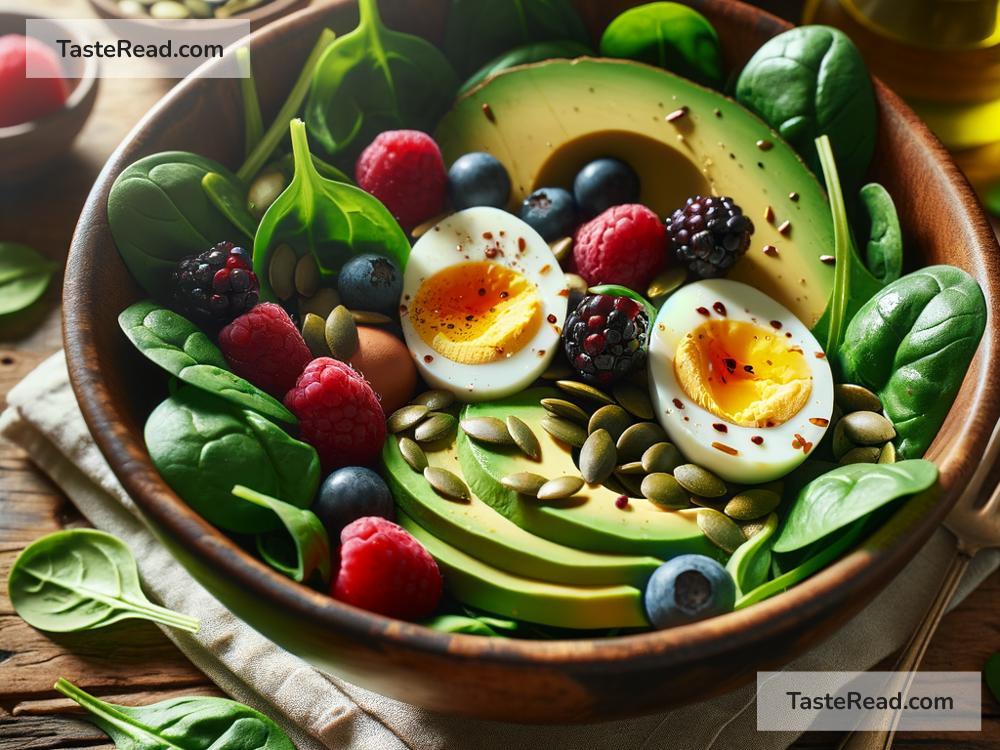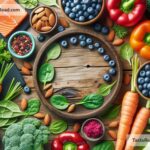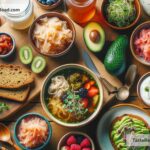Foods to Boost Fertility: What to Eat When Trying to Conceive
Bringing a baby into the world is a dream for many couples, but sometimes getting pregnant doesn’t happen as quickly as hoped. If you’re struggling to conceive or simply want to give your body the best chance to prepare for pregnancy, what you eat can make a big difference. A healthy diet isn’t just good for your overall well-being—it can also play a major role in fertility. In this blog, we’ll explore foods that can support reproductive health and increase your chances of getting pregnant.
Why Does Food Matter for Fertility?
Your body needs essential nutrients to function properly, including hormones and systems that are involved in reproduction. For women, a diet rich in fertility-friendly foods can help regulate ovulation, improve egg quality, and prepare the uterus for implantation. For men, healthy eating can boost sperm quality and increase chances of successful fertilization. By eating the right foods, you’re creating a better environment for conception.
Top Foods for Fertility
Here are some types of food that can help improve fertility naturally:
1. Leafy Greens
Spinach, kale, Swiss chard, and other leafy greens are full of vitamins and minerals that support reproductive health. They are especially rich in folate, a type of B vitamin that helps promote healthy egg development and supports early pregnancy by reducing the risk of birth defects. Folate is also beneficial for men, as it improves sperm health. Aim to include a serving of leafy greens in your meals every day.
2. Whole Grains
Switch out white bread and refined grains for whole-grain options like oats, quinoa, brown rice, and whole-grain pasta. Whole grains help stabilize blood sugar and insulin levels, which is important for hormonal balance. Hormones like insulin can influence ovulation, so eating these fiber-rich foods can support regular and healthy cycles.
3. Healthy Fats
Not all fats are created equal—some fats are great for fertility! Healthy fats, like those found in avocados, nuts, seeds, and olive oil, have anti-inflammatory properties that promote reproductive health. Omega-3 fatty acids (found in salmon, walnuts, and flaxseeds) are particularly beneficial for regulating hormones and improving blood flow to reproductive organs.
Stay away from trans fats, which are found in fried and processed foods. These bad fats can interfere with ovulation and lower chances of conception.
4. Protein Sources
Protein is important for overall body function, but what kind you choose matters. Opt for plant-based protein like beans, lentils, chickpeas, and tofu, or lean sources of animal protein such as chicken, fish, and turkey. Studies suggest that replacing some animal protein with plant-based protein can improve fertility. If you’re eating fish, pick options rich in omega-3s, like salmon or sardines, and avoid those high in mercury, like swordfish or tuna.
5. Fruits and Vegetables
Brightly colored fruits and vegetables are packed with antioxidants that help protect egg and sperm cells from damage caused by free radicals. Berries (like strawberries, blueberries, and raspberries), oranges, carrots, and bell peppers are excellent choices. Antioxidants also promote good blood circulation, which is important for the reproductive organs.
6. Full-Fat Dairy Products
While low-fat dairy is often seen as the healthy choice, some studies suggest that full-fat dairy may be better for fertility. Foods like whole milk, full-fat yogurt, and cheese may lower the risk of ovulatory infertility compared to their low-fat counterparts. However, moderation is key—don’t overindulge in high-calorie dairy products.
7. Iron-Rich Foods
Iron is important for women trying to conceive because it helps support a healthy menstrual cycle and prevents anemia, both of which are crucial for fertility. Include iron-rich foods like lean red meat, spinach, lentils, and fortified cereals in your diet. Pair these foods with vitamin C (from sources like oranges or tomatoes) to improve iron absorption.
8. Eggs
Eggs are an excellent source of protein as well as choline, a nutrient that’s essential for fetal development once you conceive. Eating the whole egg, including the yolk, provides vitamin D, which helps regulate reproductive hormones and increases fertility.
9. Pumpkin Seeds
Pumpkin seeds are rich in zinc, which is essential for improving sperm quality in men and supporting egg health in women. Zinc also plays a role in cell division and hormone production, making it an essential mineral for fertility.
Foods to Limit or Avoid
Just as there are foods that boost fertility, there are some you should try to limit:
– Sugary and processed foods: Excess sugar can cause hormonal imbalances and inflammation.
– Caffeine: Too much caffeine may reduce your chances of conception. Limit to 1-2 cups of coffee a day.
– Alcohol: Alcohol can disrupt hormone levels and reduce both egg and sperm quality. It’s best to limit drinking or avoid it altogether when trying to conceive.
Lifestyle Tips Along With Fertility Foods
Eating well is just one piece of the puzzle. Pair a fertility-friendly diet with other healthy lifestyle choices:
1. Manage stress through activities like meditation, yoga, or journaling.
2. Get regular exercise, but avoid overtraining, which can disrupt hormonal balance.
3. Maintain a healthy weight, as being overweight or underweight can negatively impact fertility.
Final Thoughts
While there’s no magic food that guarantees conception, eating a balanced, fertility-friendly diet can significantly improve your chances of getting pregnant. Focus on whole, nutrient-dense foods that support hormonal health and provide antioxidants, protein, and essential vitamins. Remember to make these changes together with your partner—fertility is a joint effort!
Small changes to your diet could lead to big surprises, so start adding these foods to your grocery list today. Good luck on your fertility journey!


